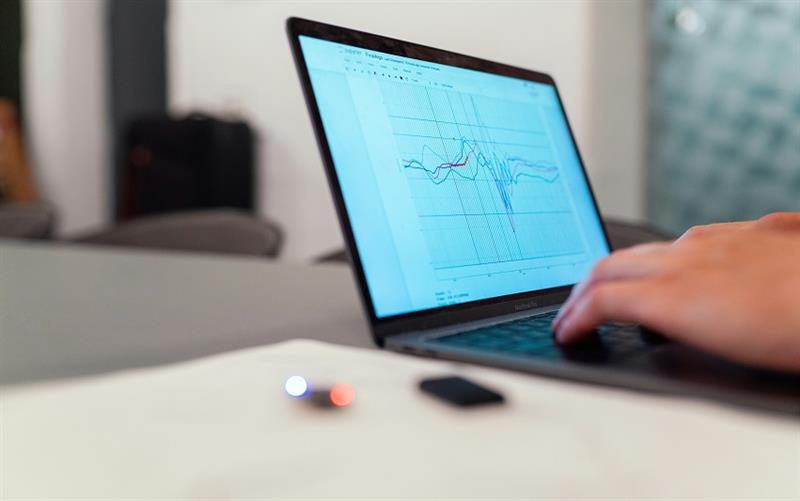
Software integration into healthcare administration is now required rather than optional. Healthcare software is transforming the sector through better patient data management, increased productivity, compliance assurance, billing simplification, telemedicine support, and data-driven decision-making. Adopting these digital solutions will be essential to delivering safe, effective, and high-quality healthcare services as technology develops.
The way healthcare facilities run and provide patient care can be greatly improved by investing in the appropriate healthcare management software. Investigate cutting-edge software options that meet your needs if you're thinking about updating your healthcare system.
The healthcare sector is constantly under pressure to increase productivity, enhance patient care, and streamline operations in the fast-paced world of today. Conventional approaches to healthcare process management frequently result in mistakes, inefficiencies, and higher expenses. This is where the industry's transformation is greatly aided by healthcare management software.
The Importance of Software in Healthcare Management
Healthcare management software is designed to automate and optimize various aspects of healthcare administration. From patient record management to billing, appointment scheduling, and telemedicine, software solutions ensure smoother workflows and improved patient experiences.
1. Enhanced Patient Data Management
The days of keeping patient records on paper are long gone. Electronic Health Records (EHRs), which are made possible by modern healthcare software, store, update, and retrieve patient data instantly. Better treatment plans, precise diagnoses, and smooth provider-to-provider communication result from this. Doctors can make better decisions faster and with less error when they have consolidated access to medical histories. In order to guarantee interoperability and effective data sharing between departments and institutions, EHRs also interact with other healthcare applications.
2. Improved Operational Efficiency
Every day, healthcare institutions manage a variety of tasks, such as managing medical inventories and appointment scheduling. By automating these processes, software programs decrease human labor, get rid of mistakes, and boost output. This frees up medical staff to concentrate more on patient care rather than paperwork. Workflow automation ensures that healthcare personnel may effectively manage their time, minimizes duplicate paperwork, and optimizes resource allocation. Additionally, hospital management software improves departmental cooperation, guaranteeing seamless operations and improved service provision.
3. Better Compliance and Security
Strict laws like the General Data Protection Regulation (GDPR) and the Health Insurance Portability and Accountability Act (HIPAA) must be followed by healthcare businesses. By keeping patient records safe and encrypted and shielding private health information from breaches and illegal access, healthcare software guarantees compliance. Blockchain technology, automated audits, and multi-factor authentication are examples of advanced security features that assist healthcare providers in staying in compliance with regulations. Furthermore, role-based access improves patient confidentiality and confidence by guaranteeing that only authorized staff can view and alter sensitive data.
4. Seamless Billing and Financial Management
Errors in medical billing can result in both patient discontent and monetary losses. Automated billing systems guarantee accuracy and transparency in financial transactions by streamlining insurance claims, invoicing, and payments. For healthcare providers, this improves financial stability, expedites reimbursement, and lowers errors. Software for revenue cycle management (RCM) also aids in generating payment reminders, tracking income sources, and effectively handling claims processing. Healthcare organizations can lower the risk of fraudulent claims and guarantee correct insurance provider reimbursement by incorporating financial management technologies.
5. Telemedicine and Remote Patient Monitoring
Telemedicine has become essential as digital healthcare has grown. No matter where they are, patients may receive prompt care thanks to healthcare management software, which enables digital prescriptions, remote patient monitoring, and virtual consultations. Telehealth platforms make healthcare more accessible, particularly for people living in rural locations, by facilitating safe contact between patients and doctors, electronic prescription services, and video consultations. In addition, real-time health data via wearable technology and Internet of Things-enabled monitoring tools enables physicians to monitor chronic illnesses and take appropriate action, lowering readmission rates to hospitals and enhancing patient outcomes.
6. Data Analytics for Informed Decision-Making
Software programs give medical personnel the ability to examine enormous volumes of data, offering insights into hospital performance, disease outbreaks, and patient trends. Data-driven choices increase overall operational efficiency, optimize resource allocation, and improve patient care. Predictive modeling for improved treatment plans and early disease detection are made possible by advanced analytics tools that employ AI and machine learning to find trends in patient records. Hospital administrators may monitor performance indicators, spot inefficiencies, and make calculated changes to improve service quality and cut expenses with the use of real-time dashboards.
7. Improved Patient Engagement and Satisfaction
Patients can take an active role in their healthcare with the use of healthcare software solutions, such as patient portals and mobile health apps. Convenience and patient satisfaction are increased by features including online medication refills, appointment scheduling, medical record access, and direct communication with healthcare professionals. Better adherence to treatment plans and general health outcomes are the results of this greater engagement.
8. Inventory and Supply Chain Management
For healthcare facilities to guarantee the availability of necessary pharmaceuticals and medical supplies, effective inventory management is vital. Real-time inventory tracking, waste reduction, and reordering process automation are all made possible by healthcare software. This optimizes expenses and efficiency by guaranteeing that clinics and hospitals have the materials they need without having too much inventory.
9. Enhanced Staff Management and Scheduling
Sustaining high-quality patient care requires effective management of healthcare staff. Software for workforce management aids in shift scheduling, timekeeping, and guaranteeing adherence to labor laws. Automated scheduling guarantees that healthcare facilities are always properly staffed, minimizes conflicts, and increases worker productivity.
10. Interoperability Between Healthcare Systems
Numerous institutions, professionals, and providers are involved in modern healthcare. Data sharing across various healthcare equipment and systems is made possible via interoperability solutions. This enhances care coordination and minimizes the need for duplicate testing or treatments by guaranteeing that patient records, test results, and treatment histories are available across various healthcare facilities.